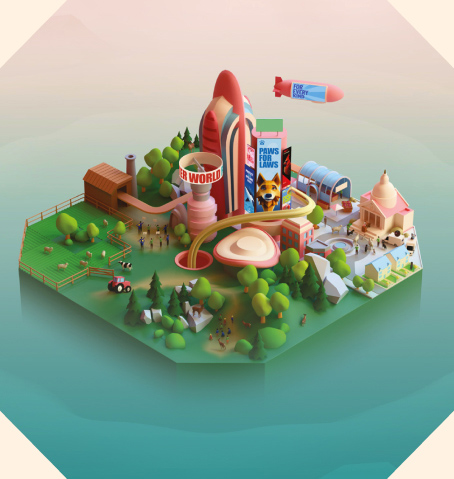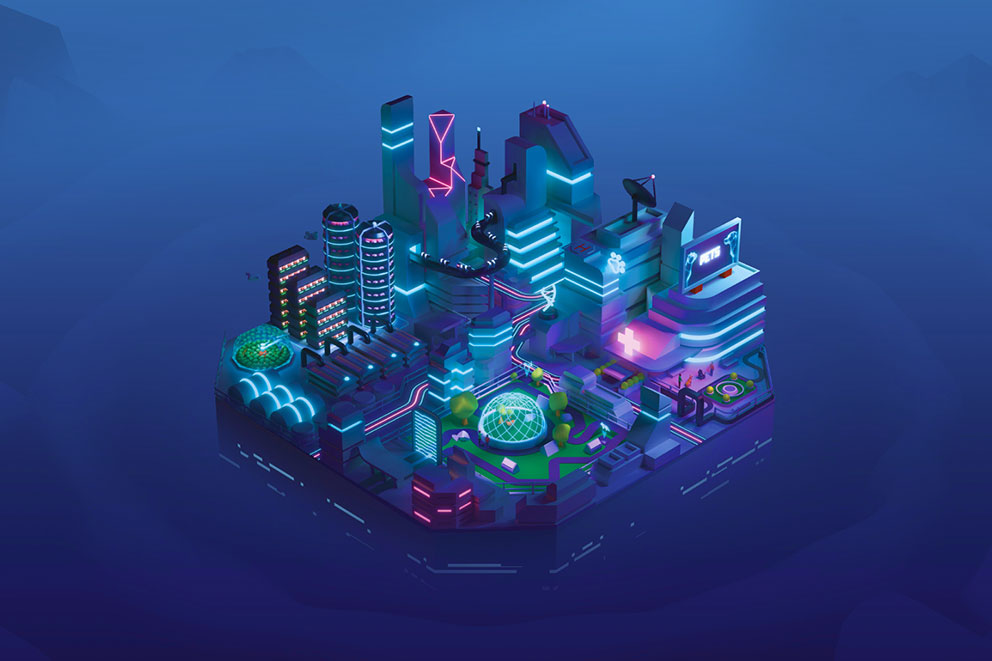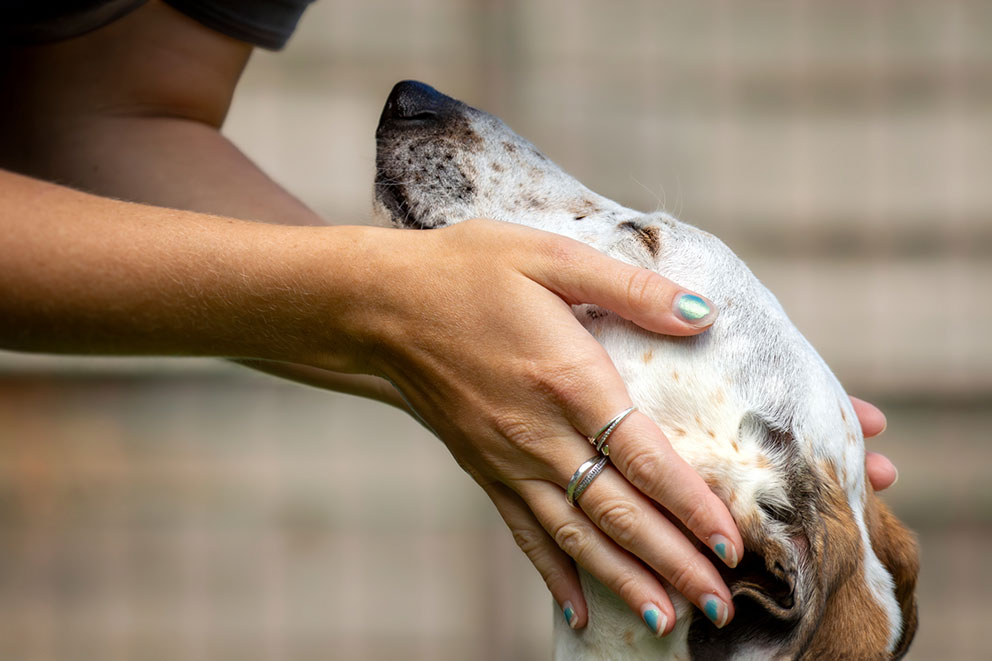A look to the future: animal welfare in 2050
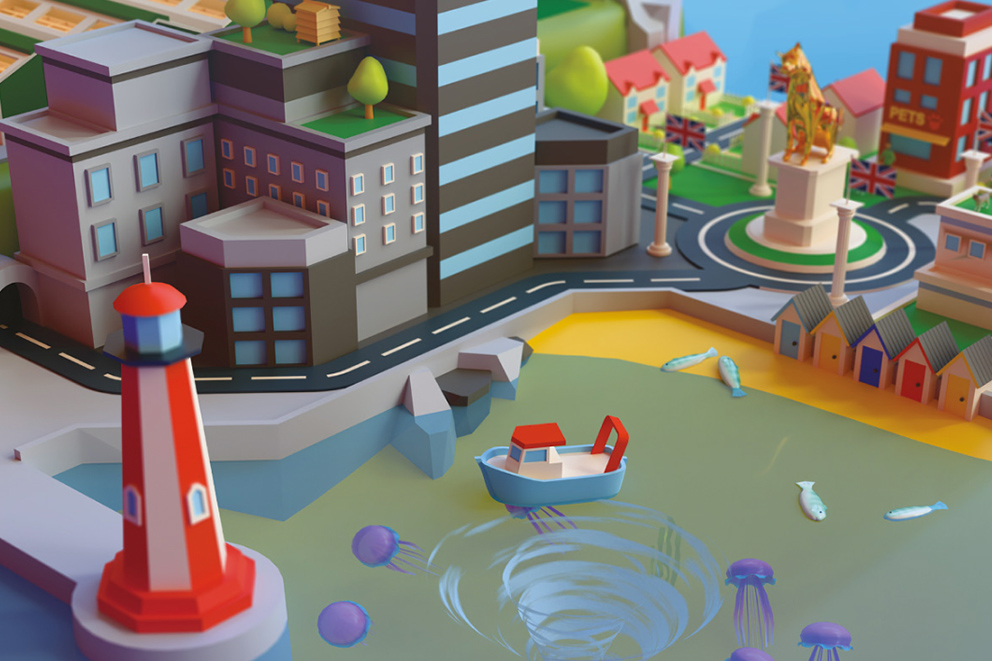
Tech-centric
In this world, we’ve used technology to supercharge our food production, but it’s meant that we’ve had to make some tough choices. Sadly, nature and animals have come second place to human survival.
Tech farms
We’ve built huge multi-storey mega farms where we can keep thousands of animals. Gene editing also means we can create super-sized cows and pigs. Conditions are terrible, but we’re not close enough to see if for ourselves.
Nature for the rich
Much of the natural world hasn’t survived. Luckily, we’ve created some beautiful nature retreats people can visit, but we have to be pretty rich to afford it.
Animals 2.0
Designer pets are hugely popular. But robot pets are also a cost-effective choice for anyone who is feeling lonely. And we’re no longer using millions of animals every year in laboratories. Now we have computer modelling which uses artificial intelligence (AI) and we grow organs on microchips.
Did you know?
Robot pets already exist and have shown to have benefits for people living with dementia. A study by the University of Plymouth gave care home residents robot cats and dogs and found it improved wellbeing.
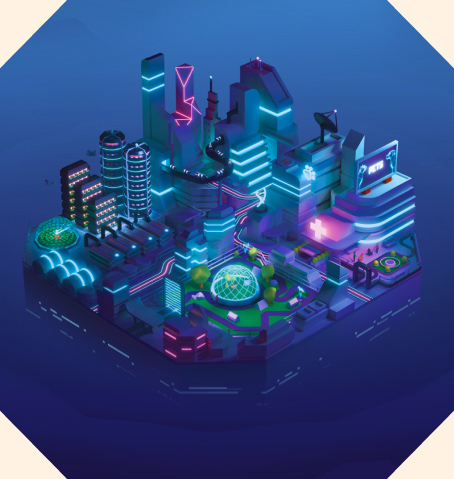
Eco carnage
We’ve ignored the warning signs about climate change and now we’re paying for it. Lots of land is now uninhabitable, for both people and animals, and we’re all focused on our own struggles. This means animal welfare is pretty far down the priorities list.
Lost world
Climate change has accelerated rapidly. The land isn’t suitable for farming, and people are abandoning it, leaving farmed animals behind to fend for themselves. Most people have become vegetarian because meat is hard to get hold of. Others turn to insects for protein, despite growing understanding that these creatures are sentient – but what choice do we have?
Did you know?
The South Australia RSPCA saw reports of livestock welfare triple this year, due in part to record dry spells causing a lack of grazing. The charity reported seeing livestock left to die in the fields as farmers struggled to feed them.
Prized pets
Pet ownership is frowned upon because of the huge pressures on resources. But those who can afford a pet find them a huge source of comfort. Animal cruelty is also on the rise as we become more disconnected from the animals around us.
Extinction
We’ve got used to seeing mass extinctions of species who just can’t cope with the changing climate, or whose habitat has been taken over by humans looking for somewhere bearable to live.
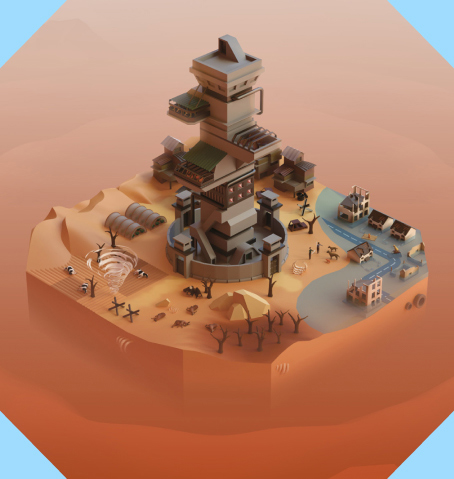
Blinkered world
We’ve made some attempts to address climate change and redesign our food system, but we’ve not been nearly ambitious enough. We’re proud of our own animal welfare, and look down on how animals are treated in the rest of the world. But we’re not actually being very honest with ourselves.
British is best?
We think British farmed animal welfare is the best in the world. Despite our pride in our standards, we can’t produce enough here to feed our population, fueling a black market for low welfare foods brought in from abroad.
Battle for land
Most land is used for farming which means there isn’t much left for wildlife and nature, resulting in protests from rewilding groups. The changing climate also means that new, invasive species emerge.
Did you know?
The UK’s Natural History Museum, which produces the Biodiversity Intactness Indicator, said in 2020 that the UK had "led the world" in destroying the natural environment. It stated that "centuries of farming, building and industry have made the UK one of the most nature-depleted countries in Europe".
Pets on top
Pets are a huge source of comfort and are valued members of the family. We see pet ownership and affection increase, but people don’t have the same love for wildlife and farmed animals.
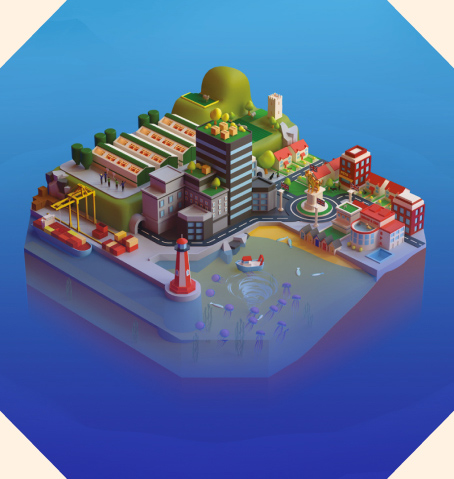
One planet
We’ve got to grips with the challenges of climate change and how to feed a growing population in a way that protects animal wellbeing and nature. And we’ve realised the future of humans, animals and the planet is interlinked – what is good for animals is good for us all.
Lab meat
The Government regulates farming to control the climate, making animal products more expensive. At the same time, it invests in alternative proteins, which people are happy to buy.
Did you know?
The UK has become the first European country to allow lab-grown meat to be sold in pet food, potentially opening the door to cultivated meat appearing on our supermarket shelves in future.
Rewild
Former farmland is rewilded. Forests rejuvenate, rivers run clear and wildlife, once on the brink of extinction, flourishes again. But there is still some tension over land use.
Pet ethics
Animal sentience is recognised in law and society, and animals are given respect. Pets are treated well, but there are debates about the ethics of pet ownership and whether we should keep animals at all.
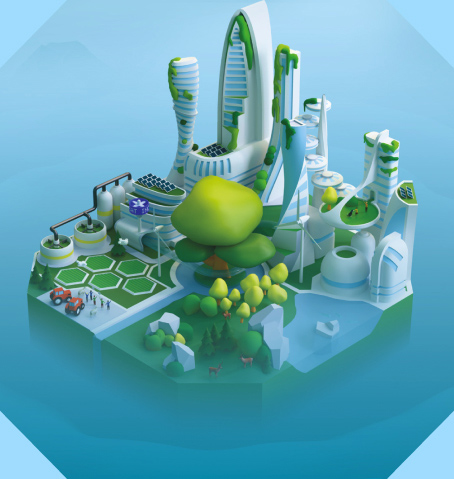
Animals speak up
Something unprecedented has happened here. Animal welfare no longer takes second place to our own and becomes a primary concern. We have transformed the way we think, feel and act towards animals.
Animals speak
A huge breakthrough in AI means we can now speak to animals. We learn which animals don’t enjoy being pets, causing some people to stop keeping them. But others question the accuracy of the technology and don’t agree with the changes in our relationship with animals.
Did you know?
Scientists studying sperm whales discovered they communicate with a complex system of clicks – an alphabet of 143 different sounds. Now they are using AI to try to interpret those sounds and hope they may one day be able to communicate with whales.
Cruelty-free food
Most people go vegan overnight. Sustainable and cruelty-free alternatives to meat, leather and animal products become the norm. In agriculture, animals become partners rather than commodities being exploited.
Paws for laws
